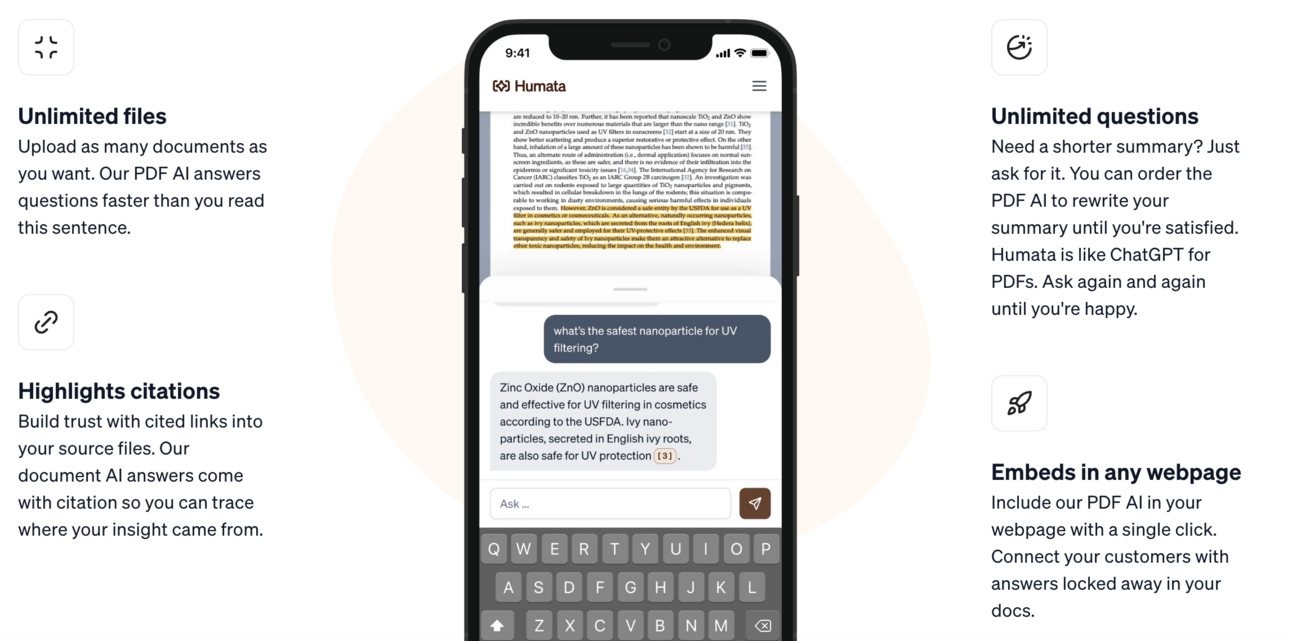Looking for unbiased, fact-based news? Join 1440 today.
Join over 4 million Americans who start their day with 1440 – your daily digest for unbiased, fact-centric news. From politics to sports, we cover it all by analyzing over 100 sources. Our concise, 5-minute read lands in your inbox each morning at no cost. Experience news without the noise; let 1440 help you make up your own mind. Sign up now and invite your friends and family to be part of the informed.
Beginners in AI
Thank you for joining us again!
Welcome to this week's edition of Beginners in AI, where we explore the latest trends, tools, and news in the world of AI and the tech that surrounds it. Like all editions, this is human curated and published with the intention of making AI news and technology more accessible to everyone.
This week, OpenAI is developing "PhD-Level" AI agents—expert-level AI models with a price tag of up to $20,000 per month. Meanwhile, China’s Manus AI is redefining autonomy, Neuralink trademarks "Telepathy", and the U.S. military explores AI in nuclear defense. AI pioneers warn of risks, and Google rolls out scam detection for Messages. Japan’s restaurants are using cat-eared robots to solve labor shortages.
Read Time: 6 minutes
AI TOP STORY

OpenAI’s PhD-Level AI: A Pricey Power Play
The Big Move
OpenAI is reportedly working on advanced "AI agents" that could operate at a near-expert level in various fields, charging companies a staggering $20,000 per month for access. These AI agents aim to automate complex tasks requiring specialized knowledge, potentially competing with human professionals in industries like law, finance, and software engineering.
The Details
These AI models would go beyond the current chat interactions, handling long-term, multi-step problem-solving autonomously. OpenAI’s business strategy suggests a shift toward high-end enterprise customers, positioning itself more as a consulting powerhouse than just a chatbot provider. At this premium price point, the target audience includes major corporations looking to automate knowledge-based work, potentially reducing reliance on expensive human labor.
The AI agents will be available in three pricing tiers, depending on their capabilities:
$2,000/month – For knowledge-based tasks.
$10,000/month – For advanced software development.
$20,000/month – For top-tier research-level performance.
What to Take Away
This would mark a stark departure from the sentiment that CEO Sam Altman shared during his congressional hearings that he was not in it for the money. That was prior to OpenAI’s decision to stop being a non-profit, which a judge has just denied Elon Musk from halting in court. For businesses, this could mean unparalleled cost cutting without the equivalent loss in capability, but for professionals, it signals a future where AI may challenge high-skill, high-paying jobs more directly than ever. Regular consumers will be priced out. If OpenAI succeeds, it could reshape industries that previously seemed immune to AI-driven automation. The big question: Will true AGI(artificial general intelligence) become accessible only to those who can afford it?
LAST WEEK IN AI AND TECH

Nuclear Neural Networks: AI in America's Arsenal
The U.S. military is exploring the integration of AI to enhance the command and control of its nuclear arsenal, aiming to improve decision-making and response times. This initiative reflects a strategic move to modernize defense systems amidst evolving global threats. For anyone paying attention, it is also how a number of dystopian science fiction movies start off, With the narrator voicing over the catastrophe that befell humans when the robots used our weapons against us. The U.S. Army War College has rightly questioned who is responsible if an AI-controlled system makes a lethal mistake—the commander, the programmer, or the AI itself?
Read more
Manus Mission: China's Autonomous Agent Takes the Lead
China has unveiled Manus, an advanced AI agent capable of independent thought and action, marking a significant leap in autonomous technology. This development positions China at the forefront of AI innovation, potentially transforming various industries. The videos that have been released so far are impressive to say the least.It is not yet available to the broader public and only a select number of influencers have been able to test it for themselves. On their website, you have the option to test one of their pre-made demonstrations or to request a specific demo that will be voted upon and made into the public gallery if selected.
Read more
Mind Meld: Neuralink's 'Telepathy' Trademark
Elon Musk's Neuralink has filed trademark applications for terms like 'Telepathy' and 'Telekinesis', indicating ambitions to enable direct brain-to-computer communication and control. These filings suggest a future where individuals could interact with devices or even each other using thought alone. Brain computer interface has already been shown as a viable technology through Nerualink and other hardware. A paralyzed man was able to control his robotic arm for a record breaking seven months using nothing but his brain and the interface.
Read more
Turing Titans: Barto and Sutton Warn of AI Dangers
Renowned AI pioneers Andrew Barto and Richard Sutton have expressed concerns about the rapid deployment of advanced AI models without adequate safety measures. Their warnings highlight the potential risks associated with unchecked AI development. It's worth balancing out the hype with measured considerations to ensure we don't lose control of this software that isn't always well understood. Despite the Turing Award being named after Alan Turing, the famous AI pioneer never received it—because it was created in 1966, over a decade after his death. Ironically, Turing himself was never formally recognized with a major prize during his lifetime, despite his groundbreaking work in computing.
Read more
Message Mastery: Google's Scam Detection Update
Google has introduced an AI-powered scam detection feature in its Messages app to protect users from fraudulent texts. This tool analyzes messages in real-time, providing warnings about potential scams and enhancing user security. One trick behind Google’s scam detection in Google Messages is its ability to identify linguistic patterns often used in phishing and scam texts. AI models trained on massive datasets recognize errors, urgency cues, and unusual word combinations that humans might miss—like those notorious “Nigerian prince” emails.
Read more
There is no reason and no way that a human mind can keep up with an artificial intelligence machine by 2035.
TECH TERMS TO KNOW
A Computer-Brain Interface (CBI)—also known as a Brain-Computer Interface (BCI)—is a technology that enables direct communication between the human brain and external devices. By interpreting neural signals, CBIs can allow individuals to control computers, prosthetic limbs, or even communicate without speaking. Companies like Neuralink are developing CBIs with the goal of enhancing human capabilities, assisting those with disabilities, and potentially integrating AI directly into human cognition.
TOOL SPOTLIGHT (non-sponsored)
Humata AI is a platform that allows users to ask questions and get answers from their uploaded documents. It's designed to streamline the process of analyzing and extracting information from various files, particularly PDFs.
Some key details:
Efficient document analysis: Humata can process large volumes of text quickly, allowing users to skip through long technical papers and get summaries or specific information with ease.
Citation and trust: The AI provides answers with cited links to the source files, enabling users to trace the origin of the information and build trust in the responses.
Flexibility and customization: Users can ask unlimited questions and refine their queries until they get the desired information, making it adaptable to various needs.
Security features: Humata offers enterprise-grade security measures, including encrypted storage and role-based access control, making it suitable for sensitive business applications.
Scalable pricing: The platform offers a range of plans from free to team-based subscriptions, allowing users to start small and scale up as needed.
ROBOTICS AND AI

In response to labor shortages, Japanese restaurants have embraced automation by deploying thousands of cat-eared robots to assist with tasks like seating customers and delivering orders, often alongside much older human wait staff. These robots, equipped with sensors and AI capabilities, navigate dining areas efficiently, enhancing the dining experience while alleviating staffing challenges. Japan's aging population has led to a significant decrease in the workforce. As a result, the service robot market in Japan is projected to expand rapidly, with expectations to triple in size over the next few years alone.
TRY THIS PROMPT (copy and paste into AI ChatGPT, Grok, Claude, Gemini)
Public Speaking Advisor(can also be used with voice mode for AI models that have it like ChatGPT, Grok, and Perplexity):
I'm working on a speech about [topic] and I'd like your feedback. I've recorded a rehearsal [link to audio/video file or paste transcription]. Please provide a detailed analysis, considering the following:
Flow: Identify any points where the speech feels choppy, disjointed, or difficult to follow. Suggest specific wording changes or transitions to smooth out the delivery.
Pacing: Is my pace consistent? Are there parts that are too fast or too slow? Suggest areas where I could vary my pace for emphasis.
Clarity: Are there any words or phrases that might be unclear to the audience? Suggest simpler alternatives if necessary.
Emphasis: Am I emphasizing the key points effectively? Suggest ways to use my voice (tone, volume, pauses) to highlight important information.
Overall Impact: What is the overall impression of the speech? Does it achieve its intended purpose? What could I do to make it more persuasive, engaging, or memorable?
Please provide concrete examples from the recording and specific suggestions for improvement.DID YOU KNOW?

NASA Uses AI to Find Alien Worlds – AI algorithms help NASA discover exoplanets by analyzing Kepler telescope data. In 2017, an AI model identified a new planet in a previously overlooked dataset. The plant is called Kepler-90i, the eighth planet orbiting the star Kepler-90.
30 Referrals: Lifetime access to all Beginners in AI videos and courses
AI-GENERATED IMAGE OF THE WEEK

Medieval Alchemist Diagram by Competitive-Sleep842
Interested in stock trading, but no clue where to start? Sign-up for our sister newsletter launching daily in April. Each day will build onto the next using current news as a learning aid.
Thank you for reading. We’re all beginners in something. With that in mind, your questions and feedback are always welcome and I read every single email!
-James
By the way, this is the link if you liked the content and want to share with a friend.






